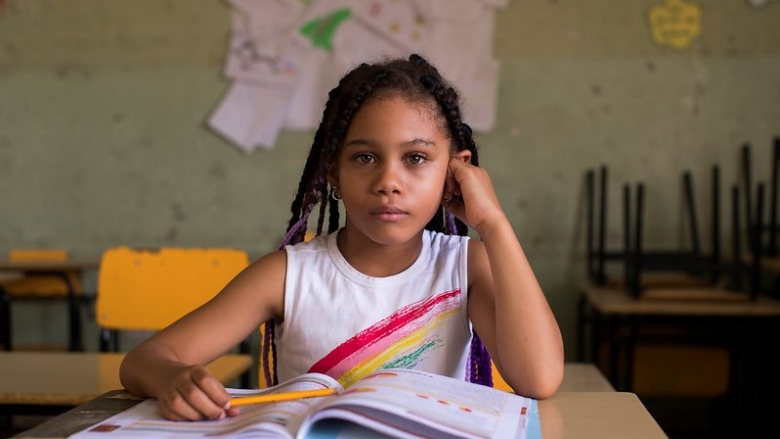Restoring debt sustainability, simplifying the tax code, strengthening and consolidating social protection systems, and improving the efficiency of water and sanitation services are just some of the key post-pandemic priorities for a return to sustained growth in the Dominican Republic, according to a new World Bank report.
“The Ministry of Economy, Planning & Development (MEPyD, @MinEconomiaRD) welcomes the World Bank’s contribution to the country’s development with the publication of its recent report, ‘Dominican Republic Public Expenditure Review 2021.’ “Its findings support the government’s efforts to improve the quality of public expenditure and put public finances on a path to greater sustainability in a context where economic activity and jobs are recovering,” said Miguel Ceara Hatton, Minister of Economy, Planning & Development. “The MEPyD recognizes this latest contribution from the World Bank and reiterates its ongoing commitment to improving its policies and public expenditure to promote economic growth, the well-being of the population, and the exercise of fundamental rights,” he added.
The main objective of the government’s public policies is to improve the quality of life of its population. The report reinforces and helps fine-tune this objective with specific policy recommendations aimed at bolstering the sustainability of public debt and the resilience of public finances to: (i) enhance the country’s capacity to cope with adverse shocks such as COVID-19; (ii) strengthen the sustainability of the social protection system and key basic services such as drinking water and sanitation—particularly for the benefit of the poorest population; and (iii) increase and improve public investments, including joint projects with the private sector.
“The country is well placed for a return to growth and to move forward with an inclusive growth agenda that brings greater prosperity to all citizens,” said Alexandria Valerio, World Bank Representative in the Dominican Republic. “As with most countries, the post-pandemic period in the Dominican Republic calls for action and decision-making to ensure that all Dominicans can achieve a more prosperous future and a greater quality of life after the pandemic,” she added.
The report, released today, focuses on how to improve the allocation of public expenditure, a key theme given the current limited fiscal space following the fiscal effort required to address the pandemic in 2020. The report highlights the following key areas to encourage sectoral reform:
- Enhance the sustainability of public debt – A strategy aimed at stabilizing the debt-to-GDP ratio could include: (i) adopting a fiscal responsibility law that allows for countercyclical investments by creating fiscal space through a reduction in spending or an increase in tax revenue; (ii) reconstituting fiscal buffers or increasing reserves to levels necessary to address macroeconomic shocks and mitigate the impact of natural disasters on the population; and (iii) increasing private sector participation in disaster risk management, including public asset insurance (schools, hospitals, roads, water treatment plants, etc.) and insurance against significant catastrophic events through the issuance of catastrophe bonds. These measures should kick-start a virtuous cycle that would lower financing costs as market trust in government bonds increases.
- Improve the targeting and efficiency of the social protection system and key basic services such as water and sanitation – Consolidating social protection programs would generate fiscal savings that could be used to expand the coverage of conditional transfers. In turn, strengthening sectoral leadership and the regulations and accountability of state-owned water and sanitation companies could improve the efficiency and quality of service delivery. Efficiency improvements and appropriate rates (including mechanisms to protect the most vulnerable) would enable fiscal transfers to support the expansion of the social protection system (in terms of coverage, continuity, and use) to ensure it reaches the poorest households.
- Increase public investment – The implementation of the reforms proposed in the report could incentivize the private sector to be more involved in infrastructure development via public-private partnerships (PPPs), which could finance investment needs, while guaranteeing the financing necessary to cover the consumption of the poorest households. While PPPs can improve service provision, the report maintains that they must be based on an optimal distribution of risk between the public and private sector to avoid excessive contingent liabilities.
The report suggests that an improvement in both the allocation of public expenditure and fiscal policy could indirectly support job creation in the private sector. Increasing the efficiency of tax collection directly reduces the cost of compliance, thereby improving the profitability of businesses. Moreover, simplifying the tax system (by focusing on increasing the tax base and harmonizing rates) would level the playing field for all companies, which would promote competition and, in turn, productivity. The report also suggests that the complexity of the Dominican Republic’s tax system could be impacting companies’ investment and hiring decisions.
The Dominican Republic Public Expenditure Review 2021 supports the government’s efforts to mitigate the effects of the COVID-19 crisis on employment and poverty, facilitate the recovery of the private sector, and maintain the country on a sustainable debt trajectory. It was carried out at the request of the government and received financial support from the French Development Agency (AFD) and the Global Water Security & Sanitation Partnership (GWSP). The document can be downloaded at this link.
To obtain more information on the World Bank and the Dominican Republic, please visit our web site.
Visit us on Facebook
Be updated via Twitter
Our YouTube channel.

